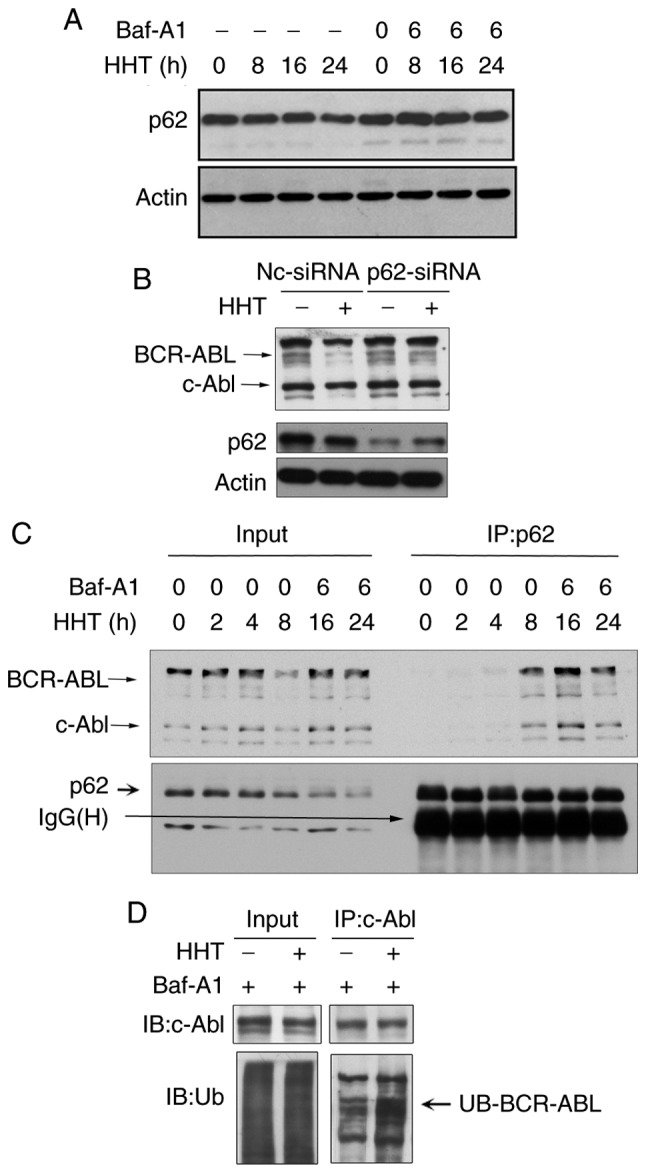Figure 4.

p62 mediates HHT-induced BCR-ABL autophagic degradation. (A) K562G cells were treated with HHT (20 ng/ml) for indicated time-points in the absence or presence of Baf-A1 (20 nM). p62 levels were analyzed by western blotting. (B) p62 knockdown reversed HHT-induced BCR-ABL degradation. p62 was knocked down in K562G cells (p62-siRNA) and control K562G cells (NC-siRNA) and then the cells were treated with 20 ng/ml HHT for 24 h and then subjected to immunoblotting. (C) HHT promoted endogenous p62 binding to BCR-ABL. K562G cells were treated with HHT (20 ng/ml) for indicated time-points. In order to avoid degradation of BCR-ABL and p62, Baf-A1 (20 nM) was added in the last 6 h of HHT treatment for 16 and 24 h. The interaction of endogenous BCR-ABL and p62 was detected by immunoprecipitation with anti-p62 antibody followed by western blotting with anti-c-Abl and anti-p62 antibodies. (D) HHT enhanced ubiquitination levels of BCR-ABL. K562G cells were treated with HHT (20 ng/ml) for 16 h, and Baf-A1 (20 nM) was added in the last 6 h. The ubiquitination was then detected by immunoprecipitation with anti-c-Abl antibody followed by western blotting with anti-ubiquitin and anti-c-Abl antibodies. HHT, homoharringtonine; Baf-A1, Bafilomycin A1.
